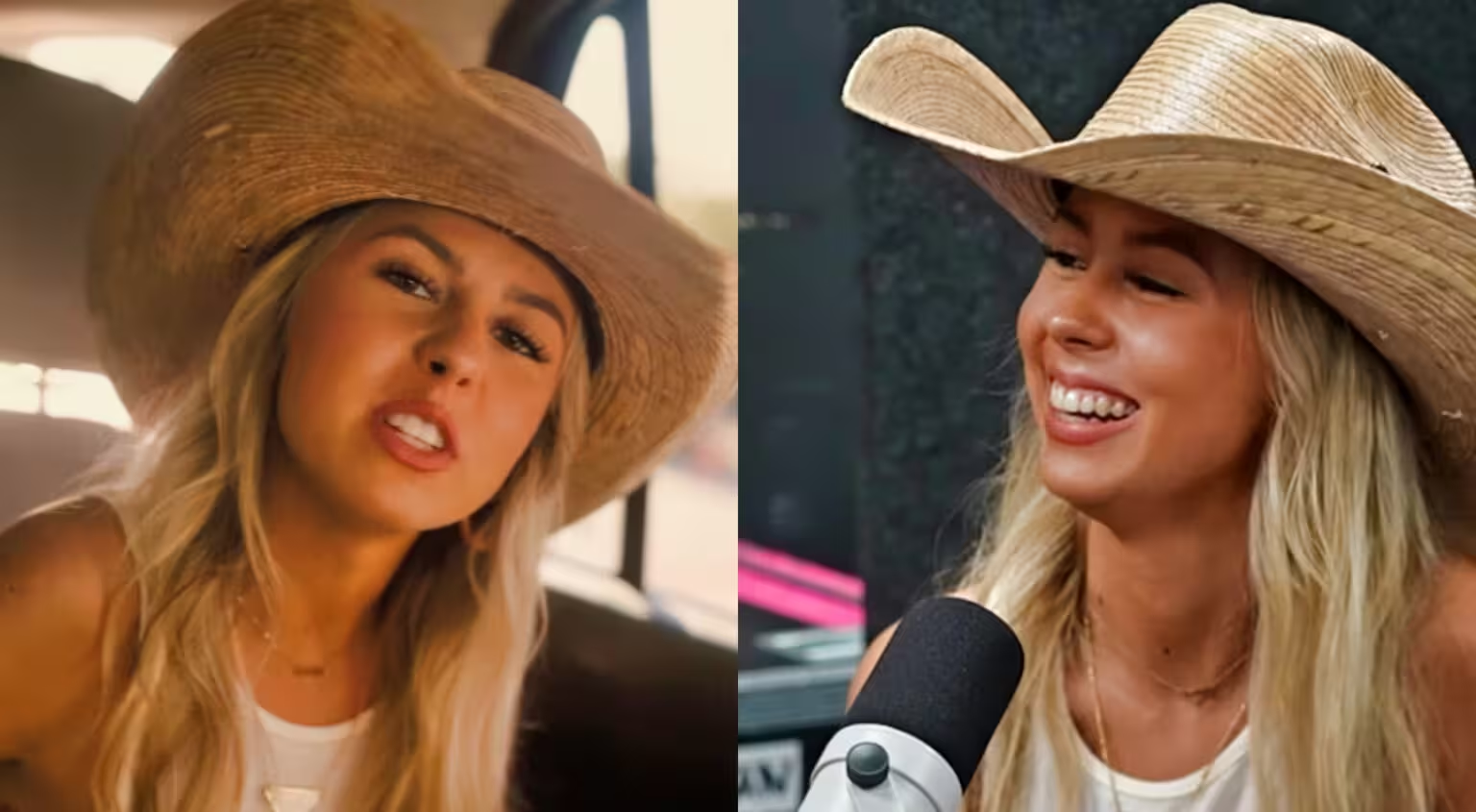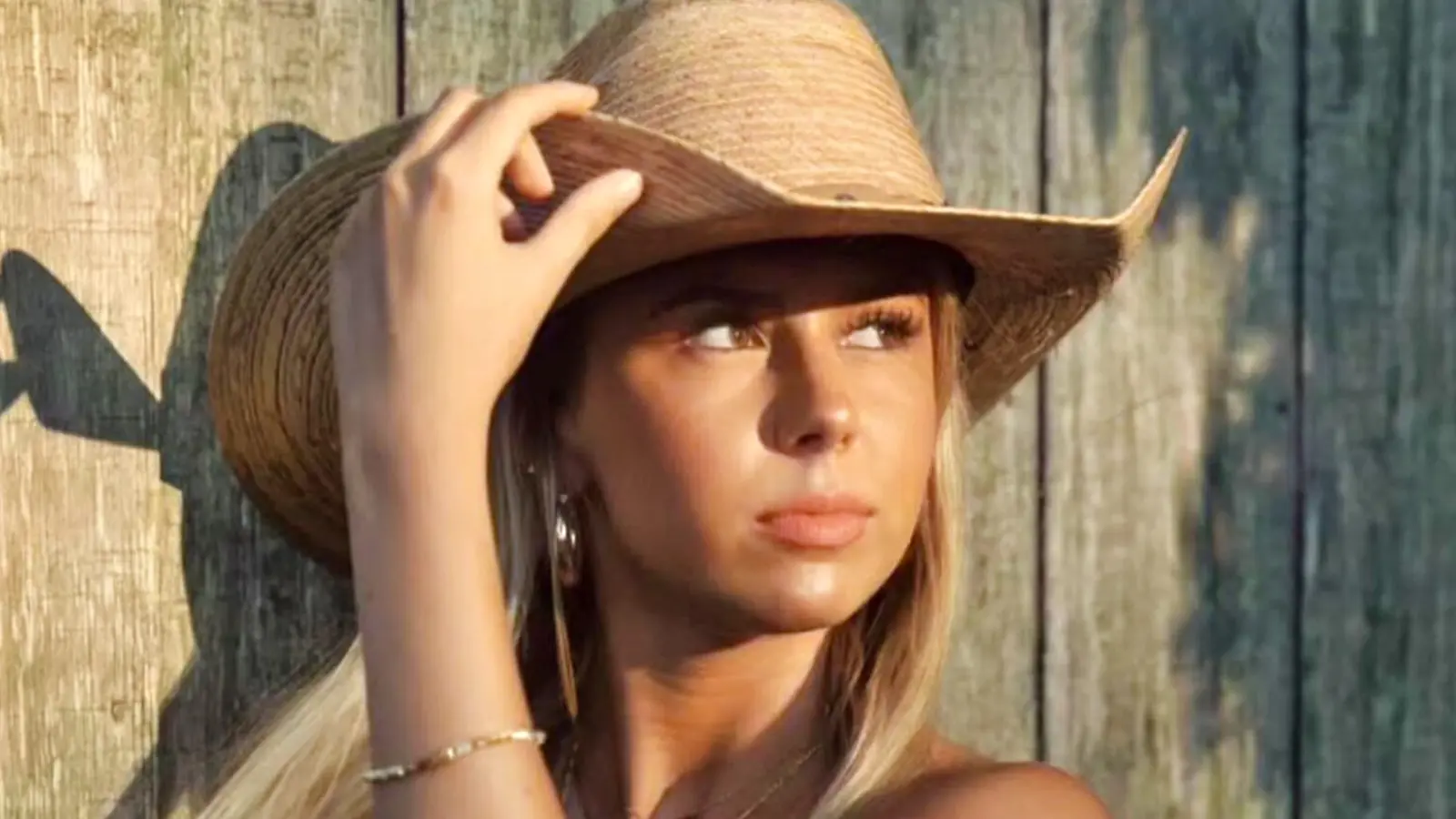5 Minutes
Haliey Welch has broken her silence after a social media uproar over a cameo in Hulu’s Chad Powers, the new Glen Powell-led drama that mixes celebrity meltdown with sports satire. The internet controversy began when influencer and actress Brittney Rae Carrera posted a viral reaction claiming she’d been replaced in a scene from the show’s pilot. Welch — who rose to fame as the “Hawk Tuah Girl” after a Nashville TikTok clip went viral in June 2024 — says she has reached out to Carrera and that the situation has been smoothed over.
In the series’ opening episode, Powell’s disgraced football star strolls into a nightclub’s VIP area and recognizes Welch. He shouts the TikTok catchphrase — “Hawk tuah! Spit on that thang” — and a brief, comic exchange follows. The scene (clocking in as one of the pilot’s small but memorable moments) shows Welch correcting the character’s mispronunciation of her name: “My name’s Haliey, dickhead,” she snaps. It’s a tiny beat, but for viral personalities, small beats can translate to major exposure.
Carrera’s reaction clip, shot during a watch party, went viral quickly: she paused the episode and claimed, “They replaced me with ‘Hawk Tuah’? That’s my scene… I filmed this.” Industry reporting confirms Carrera was initially cast in the role, but reshoots and recasting are routine in film and TV production — especially when studios refine a pilot after test screenings.
Welch posted to her Instagram Story (now expired) to counter the online speculation: she said she’d been tagged in many videos and that she had contacted Carrera personally. “We’re cool,” Welch wrote. She insisted she wasn’t aware the role had previously been filled and framed the opportunity simply: she was invited to appear in a TV series with Glen Powell and accepted. Welch emphasized the lack of any malicious intent, adding that she admires Carrera’s content.

This episode highlights two contemporary trends in entertainment: the way social-media fame accelerates casting opportunities, and how pilot reshoots can create confusion for audiences watching casting announcements in real time. Studios increasingly look to TikTok and YouTube personalities to boost visibility; some transitions succeed (bringing genuine acting chops or star power), others come under scrutiny for replacing working actors with viral names. The example recalls other recent shifts where creators parlayed online followings into roles on streaming platforms — a short-cut with both marketing benefits and potential controversies.
Fans of Chad Powers have been split: some enjoy the cameo as a fun piece of meta-commentary that fits the show’s tone, while others view casting changes as a symptom of how the business values reach over process. Behind the scenes, casting directors and producers frequently adjust guest parts to suit chemistry, tone, or legal clearances. Pilot reshoots can mean an originally cast actor doesn’t appear in the final cut — frustrating for performers but not unusual in production life-cycles.
"This is emblematic of 21st-century casting friction — the collision of viral culture with scripted TV production," says film critic Anna Kovacs. “Producers balance practical production needs with promotional opportunities; sometimes that creates messy headlines, even when the intent is innocuous.”
Welch’s journey — from Nashville viral clip to representation with The Penthouse management, launching a Talk Tuah podcast, and a planned DocTuah documentary — illustrates how fleeting internet moments can be engineered into sustained media careers. For Chad Powers, the cameo performs double duty: a wink to contemporary fandom and a reminder that today’s casting conversations happen as loudly offscreen as they do on.
The exchange between Welch and Carrera is less a scandal than a snapshot of modern entertainment: fast, public, and sometimes awkward. As streaming shows continue to mine internet talent, expect more small-cast disputes to surface — and, usually, for the industry to move on once cameras roll again.
Source: deadline


Leave a Comment